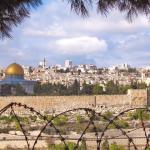 5. Addiction and Mental Illness
5. Addiction and Mental Illness
It is true that the spiritual folks tend to have lower incidence of mental illnesses such as anxiety and depression. But if you thought these issues do not exist in religious communities, then think again. Mental illnesses are prevalent in religious communities and so is addiction to drugs and alcohol. I believe strongly in the strength of prayers for healing, however these illnesses require professional help.
On the flip side, folks who have sought professional help look for spiritual healing, and yet don’t find the help they need at the church or mosque.
It is not enough to say that alcohol and drugs are forbidden. Those who struggle with it, or who provide professional help know very well it is not easy to kick the addiction. What I said about mental illnesses is equally applicable to addiction. These folks need to seek professional help, but the pulpit should openly discuss it, not stigmatize it and offer spiritual help to combat this problem.
6. Radicalization, Extremism and Zealotry.
You may think this is an area that only Muslims need to worry about. The fact of the matter is that the extreme right wing among the Christians, Hindus and Jews pose the same or worse problem. What creates religious extremism leading to bigotry and hate? How do we detect it among ourselves and then address it? What is the mosque (or the church, synagogue or the temple) doing to establish an environment of openness and inclusiveness?
How do we use the religious texts and the examples of our role models to combat extremism? These are difficult questions that may not have easy answers. But without a debate, we have zero chance of finding the answers.
Let there be no compulsion in religion –The Qur’an 2:256
The Qur’an calls for moderation in worship, moderation in dealings with others, moderation in spending, and calls the Muslim nation a ‘middle nation”, meaning in between two extremes.
Thus, We have made you a justly balanced community that you will be witnesses over the people and the Messenger will be a witness over you. 2:143
The justly balanced (wasat) in reality is the furthest point between two extremes. There is no doubt that the two poles of excess and extravagance are destructive, so to be moderate in character is to be furthest from them, which is to be just and virtuous. al-Tafsīr al-Kabīr for 2:143
 7. How Do I Practice My Faith TODAY, and not how it was done 1400, 2000 and 3000 years ago.
7. How Do I Practice My Faith TODAY, and not how it was done 1400, 2000 and 3000 years ago.
We hear how great some of our religious role models were, their heart-warming stories in the times of Muhammad, Jesus and Moses. Though these stories are indeed inspirational, often time it makes folks get stuck in the old times, searching for relevance to the current times they live in.from Mecca to jerusalem
How do we reconcile creation stories in the Qur’an and the Bible with the evolution theory? Are they mutually exclusive? Adam was the first human created but how does that fit into the evolution theory? If we don’t believe in the evolution theory, what is the rational basis for such belief?
Muslims are celebrating the Is’ra, or Miraj tonight, marking the miraculous night journey of Prophet Muhammad from Mecca to jerusalem and then to the heavens, and back. This is a night for Dhikr, worshipping, extra prayers and supplications How do you explain this to someone who has doubts about this journey? How does one apply the inspirations they received to their daily lives?
How do you deal with your “religious” doubts or questions? Can we stop pretending that we know the answer to every faith-related question?
How do you find the answers to modern issues and ethical questions: can I donate or receive organs? Why, why not? Is abortion ‘haram’, or forbidden? If so, what’s the Scriptural or other basis in religious jurisprudence?
OK, I admit I asked way too many questions without the answers. But that is indeed the idea. I would like these issues to be discussed openly by the pulpit and not pretend that they do not exist.
I understand each place of worship is different, and some may indeed be actively engaged in the issues raised here more than others. But clearly, more needs to be done, or we run the risk of folks moving away from places of worship to find answers elsewhere. We may already be experiencing it.
















